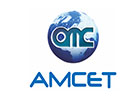Gulf Glass Factory has signed an engineering, procurement and construction (EPC) contract with Falorni Gianfranco for Qatar’s first container glass plant.
Qatar Industrial Manufacturing Company (QIMC) owns 50% of Gulf Glass Factory and its CEO, Mr. Abdul- Rahman Abdullah Al Ansari, who is also Chairman of Gulf Glass Factory, signed the agreement with Mr. Riccardo Scarselli, CEO of Italian company Falorni Gianfranco.
The project will focus on the production of glass containers used in the packaging of water, soft drinks, dairy products and various foodstuffs as well as medicines and perfumes.
Design capacity of the plant in the first phase will be 200 tons/day through one furnace. A second furnace will be built in the second phase of the project, which will raise the production capacity to about 450 tons per day.
The total cost of the first phase of the project is QR 238 million ($65.3 million) and is expected to reach QR 300 million ($82.4 million) at the end of the second phase.
Natural gas is the main source of energy in this process. The project will be based on local sand available from QIMC’s sand washing plant. Tests were carried out on local sand which proved its quality and suitability to produce glass containers.
The project will have a positive impact on the industrial sector in Qatar and will contribute to the development of the growing food & beverage sector which includes: mineral water, soft drinks, juices, dairy products, packaged foods (pickles, oils, sauces, jams, honey, etc.).
The food industry is gaining special importance from the Government and is expected to be one of the most important components of the national economy in the near future.
The project will satisfy the local needs of glass containers, which are currently imported from outside sources at high costs, in addition to exporting a some of its products to neighbouring Arab markets, particulalry Lebanon, Jordan, Syria and Iraq.
These countries suffer from a severe shortage in the availability of glass containers since they do not have any glass containers produced domestically, while their needs are very large given the size and importance of their food industries.
It is expected that the project will be a good opportunity to compete in these countries as well as other global markets.



























